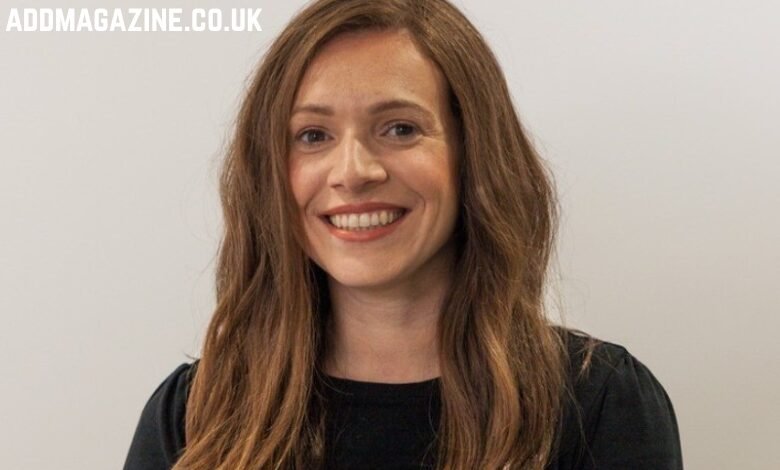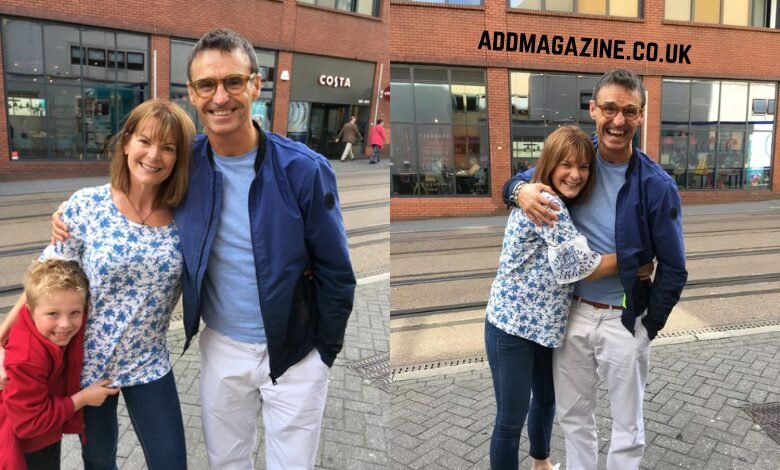Sophia Kingan’s professional journey is an example of how technical expertise can evolve into a leadership role outside of the traditional research and development path. With a foundation in forensic and analytical science, advanced training in drug chemistry, and early work as an analytical chemist, she transitioned into scientific and engineering recruitment. Over more than a decade, she has developed a reputation for connecting highly specialized talent with organizations across the pharmaceutical, medical technology, healthcare, and engineering sectors.
Her work combines industry-specific scientific knowledge with the operational demands of recruitment, enabling her to bridge the gap between hiring teams and technical professionals. Today, as a Business Manager in the scientific and engineering recruitment sector, Kingan manages teams, consults for clients, and supports companies in both the UK and international markets.
Academic Foundation
Kingan’s academic path reflects a strong commitment to scientific precision and applied research. She earned her BSc (Hons) in Forensic and Analytical Science from Sheffield Hallam University in 2008, graduating with First-Class honors. Her undergraduate dissertation focused on the characterisation of household dust for forensic applications. This project required proficiency in advanced analytical techniques such as ICP-OES, ICP-MS, and SEM-EDX, as well as the application of statistical methods to interpret complex datasets.
Following her undergraduate degree, Kingan pursued an MSc in Drug Chemistry at Newcastle University, completing it in 2009 with distinction. Her master’s research, supported by Cancer Research UK, was titled “Novel Pro-Drug Moieties”. The work aimed to explore potential carrier molecules for real drugs using selected dicarboxylic acids. The project involved organic synthesis and a range of analytical methods, including LC-MS, IR, and proton NMR spectroscopy. This advanced training not only deepened her technical expertise but also provided experience in research design, experimental execution, and critical analysis.
Early Career in Analytical Science
After completing her studies, Kingan began her career in laboratory-based analytical roles. At Severn Trent Laboratories Ltd (later part of ALS Laboratories UK), she worked as an inorganic analyst, focusing on ICP-OES and ICP-MS analysis, total organic carbon measurement, and anion determination in potable water. She was responsible for ensuring compliance with quality systems and for validating analytical instruments, tasks that demanded both precision and adherence to regulatory standards.
Her earlier experience at Sheffield Assay Office had already introduced her to metallurgical analysis, including dissolution of metals, potentiometric titration, bead fusion, and XRF analysis. This position required careful handling of materials and a strong understanding of chemical principles applied to quality assurance in the precious metals sector.
These early roles gave Kingan direct exposure to the operational realities of laboratory work, from maintaining analytical accuracy to meeting project timelines under regulatory oversight. This background would later prove valuable in recruitment, as it gave her an insider’s view of the technical requirements and pressures within scientific industries.
Transition into Recruitment
Kingan’s move into recruitment began in 2010 when she joined Lab Support, a division of On Assignment, as a senior recruiter. This role marked a significant shift—from conducting experiments to sourcing, evaluating, and placing technical talent.
Her recruitment responsibilities spanned the pharmaceutical, medical device, biotechnology, environmental, food, and chemical industries, covering regions including Yorkshire, East Midlands, and Cambridgeshire. She placed candidates across a range of roles, from laboratory technicians to senior management positions. Her tasks included candidate sourcing, interview coordination, contract negotiation, and post-placement support.
Kingan also developed client relationships with hiring managers and HR teams, delivered presentations at academic institutions, attended recruitment fairs, and provided training to junior recruiters. This early recruitment experience was grounded in a consultative approach, focusing on building trust with both clients and candidates.
Long-Term Work in Scientific and Engineering Recruitment
In 2015, Kingan moved to Consult, a recruitment firm specializing in scientific and engineering placements. Over nearly a decade with the company, she advanced to Business Manager – Scientific. In this role, she not only managed her own recruitment portfolio but also led a team, shaping strategy and ensuring consistent delivery of services.
Her clients often approached her with specific needs:
- Scaling teams rapidly to meet growth objectives.
- Recruiting specialists for time-sensitive projects.
- Seeking market insights to inform hiring strategies.
- Filling unexpected vacancies that disrupted workflow.
- Addressing urgent or temporary staffing requirements.
Kingan’s value to these clients lay in her dual perspective. With a scientific background, she could understand the technical competencies required for each role. With her recruitment experience, she could navigate market conditions, salary expectations, and candidate availability. This combination allowed her to act as both a recruiter and an advisor, guiding clients toward solutions that fit their operational realities.
Her approach emphasized long-term relationships over transactional interactions. Many clients who initially engaged her for a single project chose to make her their preferred recruitment partner. She was known for tailoring recruitment strategies to the specific needs of each organization, whether it was a start-up expanding into new product lines or an established firm replacing a critical team member.
Move to Connected Search Group Ltd
In 2025, Kingan joined Connected Search Group Ltd as Business Manager – Scientific and Engineering. This move expanded her reach, enabling her to support clients in manufacturing, research and development, and engineering sectors on both a domestic and international scale.
Her work continues to focus on bridging scientific expertise with recruitment needs. Whether hiring for permanent roles or sourcing temporary specialists, she draws on her market knowledge and network of candidates to match skills with organizational goals. She remains involved in both hands-on recruitment and the strategic development of recruitment teams.
Skills and Specializations
Kingan’s effectiveness as a recruiter in technical fields rests on several core competencies:
- Scientific Literacy – Her formal education and laboratory experience enable her to understand technical job descriptions and evaluate candidate suitability beyond resume keywords.
- Industry Network – Years in recruitment have built a wide network of professionals in science and engineering, providing access to both active job seekers and passive candidates.
- Consultative Approach – She engages with clients to clarify business needs before recommending recruitment strategies, ensuring that hires align with operational goals.
- Market Insight – Knowledge of hiring trends, salary benchmarks, and talent availability allows her to advise clients on competitive positioning.
- Team Leadership – As a manager, she oversees recruitment teams, mentoring staff and aligning their activities with business objectives.
Recruitment Philosophy
Kingan’s recruitment philosophy is rooted in collaboration. She treats each hiring process as a partnership with the client, aiming to understand not only the technical requirements but also the organizational culture and long-term plans. This alignment, she argues, increases retention rates and reduces the cost of repeated hiring.
She also places emphasis on candidate experience. By maintaining clear communication and providing feedback throughout the recruitment process, she fosters positive professional relationships, even with candidates who are not selected for a role. Over time, this approach strengthens her reputation in specialist markets where word-of-mouth plays a significant role.
Influence of Scientific Background on Recruitment Work
Unlike many recruiters who enter the profession directly from business or sales backgrounds, Kingan brings firsthand experience of the environments her candidates will work in. She has handled analytical instruments, adhered to laboratory quality standards, and conducted research under deadlines. This background enables her to:
- Ask informed questions during candidate interviews.
- Recognize when a role’s requirements are unrealistic or misaligned.
- Communicate effectively with hiring managers about technical expectations.
- Spot transferable skills in candidates whose backgrounds do not exactly match job descriptions.
For clients, this means that job specifications are more accurately translated into search criteria. For candidates, it means that their skills are understood in context, improving the chances of appropriate placement.
Professional Development
Throughout her career, Kingan has invested in professional training. She completed the Social Talent Black Belt in Internet Recruitment, covering topics such as personal branding, employer branding, networking, job advertising, Boolean search, and social sourcing. She has also received training on employment law and agency worker regulations, equipping her to manage compliance issues in recruitment.
Industry Impact
In specialized sectors such as pharmaceuticals, med-tech, and engineering, recruitment plays a critical role in enabling companies to meet production deadlines, secure regulatory approvals, and bring products to market. By ensuring that these companies have access to qualified professionals when they need them, recruiters like Kingan contribute indirectly to innovation, public health, and industrial growth.
Her work in both contract and permanent recruitment supports flexibility in the labor market, allowing organizations to adapt to short-term demands without compromising on quality.
Challenges and Adaptations
Scientific and engineering recruitment is influenced by factors such as regulatory changes, economic cycles, and global competition for talent. Kingan’s career has spanned periods of both growth and uncertainty, including shifts in pharmaceutical manufacturing priorities, changes in visa regulations affecting international hires, and the impact of emerging technologies on required skill sets.
To remain effective, she has adapted sourcing methods, expanded her international reach, and maintained continuous engagement with her candidate network. This adaptability is essential in a field where the right hire can determine the success or failure of a project.
Continuing Role in the Sector
As of mid-2025, Kingan continues to work with clients ranging from start-ups to established multinationals. Her portfolio includes positions in laboratory operations, quality assurance, regulatory affairs, process engineering, and research. By balancing the immediate needs of recruitment with long-term relationship building, she remains a consistent presence in a competitive market.
Her progression from the lab bench to recruitment leadership demonstrates that scientific training can be a foundation for careers in areas beyond research, particularly when combined with communication skills, strategic thinking, and a commitment to professional development.
Conclusion
Sophia Kingan’s career reflects a blend of technical expertise and recruitment strategy. Beginning in analytical chemistry and forensic science, she built a foundation of laboratory skills before moving into talent acquisition for science and engineering sectors. Over more than a decade, she has established herself as a trusted partner for organizations needing specialized talent, guiding them through the challenges of hiring in highly technical fields.
Her ability to understand the work her candidates will perform, combined with her understanding of the hiring market, positions her uniquely among recruiters. For those considering careers that combine technical and people-focused skills, her path offers a practical example of how scientific expertise can be leveraged beyond traditional research roles.



